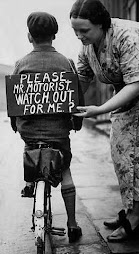
Memphis-area cyclists say they're pleased with the steps under way to create the city's first bike lanes, although the move comes far behind other communities when it comes to supporting commuter biking.
"I think it's a step in the right direction," said Anthony Siracusa, executive director of Revolution Community Bicycle Shop. "But let me be clear in what kind of step it is: It's a very small step."
City officials met Thursday with members of the cycling community to share plans for the city's first bike lanes along Shady Grove and Brierview. The lanes are scheduled to open this fall.
"My personal opinion is it's slow going," said Cort Percer, a sales associate at
The Peddler Bike Shop. He also runs the Fix Memphis biking blog.
"I appreciate the effort and ultimately what we're working on, but it could be going faster," Percer said.
Even newcomers know how far behind Memphis is.
Josiah Newton moved to Memphis earlier this month from College Station, Texas, where bike lanes were in abundance.
"I've only heard bad things," Newton said, quoting Bicycle magazine, which in May named Memphis one of the worst cities for bicyclists.
"I'm really happy to hear they're putting in bike lanes. The sooner they do it, the safer it is for me and other bikers," he said as he browsed in the Midtown Bike Co.
The lanes are the first of what will be a network of commuter bike routes throughout the city, said city engineer Wain Gaskins.
The city will follow preferred routes laid out in a revised major road plan, adopted several years ago.
"Those are not necessarily the only locations, those are the recommended locations," Gaskins said. "We're going to focus on those areas first. Long range, we're going to be including more streets as options."
The need for bike lanes is growing, according to bicycle shop operators who say soaring gas prices have been good for business.
Repairs at The Peddler on Highland have almost doubled since last year, when they got from three to five bikes a day, Percer said. Now, it's six to eight.
Sales and repairs at Midtown Bike Co. are up by about 35 percent, said manager Daniel Duckworth.
"Before gas peaked, we thought we were going to have a bad year," Duckworth said.
Instead, people are bringing in 10- or 20-year-old bikes to be restored and repaired, or buying new ones.
They're selling bags and baskets, and traffic on the Web site has doubled, he said.
"That kind of indicates people are looking for alternatives," Duckworth said. "And I think that's how it's going to be for a while, if not indefinitely."
With more two-wheelers sharing the road, bike lanes will be a necessity, riders say.
"What we're talking about here is providing a safe space for for bicyclists," Siracusa said.
Just last week, Daniel Fadgen, a 47-year-old bicyclist, was hit on Germantown Road near Wolf River Bridge by a driver who left the scene.
Thomas Ruffin, 26, of Cordova, later returned and was charged with failure to maintain a safe lookout, failure to notify police of an accident immediately and proof of auto insurance.

-- Linda A. Moore: 529-2702
Commercial Appeal
Saturday, July 12, 2008
Photos by Britney McIntosh/The Commercial Appeal














